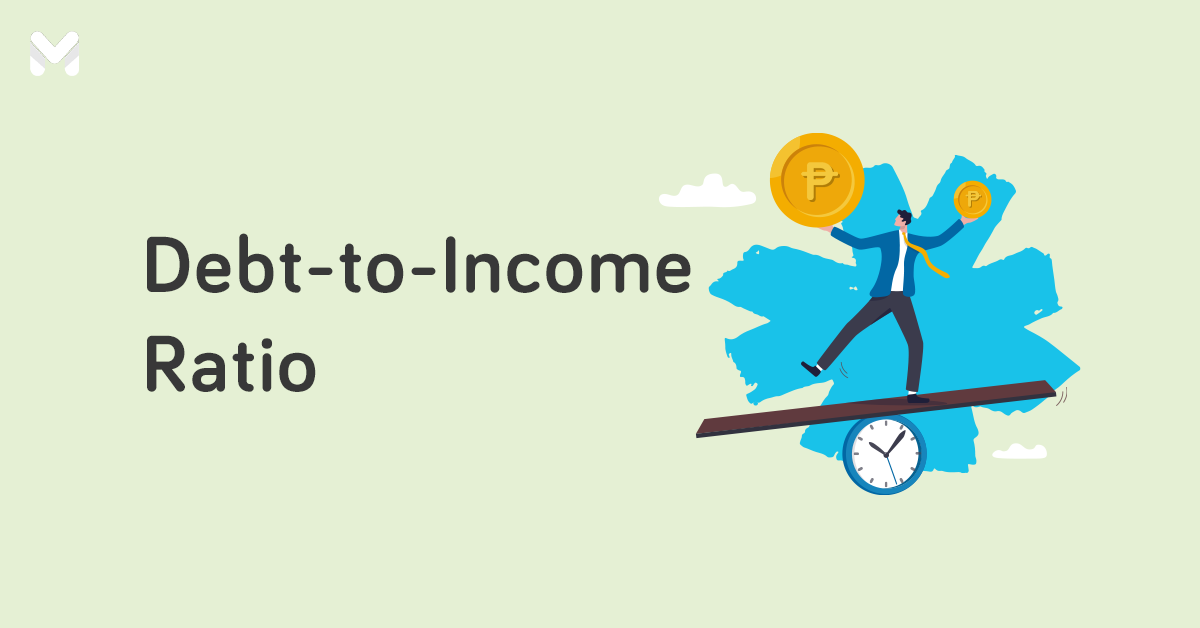The importance of money couldn’t be underscored enough during the past pandemic-stricken years. While we faced the uncertainties of the future, the truth that money burns easily became clearer than ever. We also came to realize that aside from making money, it's also important to learn how to keep it and make it work.
In the past years, financial independence may have been elusive. If you think you’ve committed financial blunders, here are five words to comfort you: it is not too late. You still have time to correct your mistakes and start anew.
And hey, you’re reading this article! That should count for something. You’ve made it this far, and you’re well on your way toward financial recovery and freedom.
To help you make your 2023 the best one yet in terms of personal finance, here are 23 financial goals that you should take note of.
What is a Financial Goal and Why is It Important?
A financial goal is simply a target, whether it’s savings, investments, or personal growth, that you want to achieve over a definite period. Generally, it involves steps and strategies to ensure your future's stability and security.
Here are a few reasons why it’s important to set financial goals.
✔️ It Gives You an Idea of How Much You Need to Save or Invest
Your financial goal is basically the big picture. To achieve it, figure out how much money you’re supposed to make, earn, or invest.
Take this one situation for example. If your goal is to travel to Japan next year, you’ll find out while budgeting that you need to save about ₱30,000 to ₱50,000 for a great trip and a comfortable buffer.
✔️ It Will Make You Realize That Not All Goals are the Same
As you plan for the future, you’ll realize that not all goals have the same level of value and importance. Therefore, each goal requires a different approach or strategy.
If you want to save for your kid’s college education, it’s wise to start investing early in aggressive funds with a long-term horizon. On the other hand, if your goal is to raise funds for the down payment for a new home, it’s necessary to find a part-time job to create another stream of income.
✔️ It Determines the Future of Your Career
Your financial goal can influence the choices that you make when it comes to your career. For example, if you want to protect your and your family’s health, you’ll definitely want to work for a company that offers a comprehensive healthcare plan.
Similarly, if you want to climb up the corporate ladder, you need to invest in personal growth activities, such as taking an MBA degree or completing a management training program.
What Makes a Good Financial Goal?

Borrowing some key principles from the corporate and business world, every financial goal should be SMART, meaning it should be specific, measurable, attainable, relevant, and time-bound. The SMART acronym is not just the standard for your financial goals—it will also be your how-to guide.
Say your goal is to build an emergency fund. This is how you’re going to set it using the said parameters.
- Specific – Your specific goal is to save ₱100,000 within a year.
- Measurable – Since your goal is to build the ₱100,000 cash reserve in a year, you’ll need to have a target monthly saving of ₱8,500.
- Attainable – Ask yourself if the monthly ₱8,500 saving is attainable with your current paycheck. If not, you’ll need to make some adjustments, such as sticking to a smaller daily budget, biking to work instead of driving, or curbing your frappe or milk tea cravings.
- Relevant – Double-check if your current ₱100,000 goal is enough, considering the current state of inflation and other factors. Will it sufficiently cover any emergency costs? If not, adjust accordingly.
- Time-bound – If one year is not a feasible target, you can always extend it to a year and a half, or even two years. Even if you make some adjustments, ensure that your financial goal has a deadline.
23 Financial Goals to Set This 2023
This financial goals list, consisting of 23 goals for 2023, is generally categorized based on your age or your current life stage. Nevertheless, you can blur the lines and pick the goals that work for you regardless of your age.
List of Financial Goals for Those in Their 20s
These are goals for young professionals in their 20s who are managing their own hard-earned money for the first time. If you want to go beyond savings and emergency funds, you can also look for inspiration in the goals listed here.
🎯 Arm Yourself with Financial Knowledge
Arming yourself with knowledge will make the creation of financial goals a whole lot easier. You may want to start with the light ones, such Chinkee Tan's or Bo Sanchez's best-selling books.
But if you’re looking to advance your knowledge, you can read the books recommended by Investopedia[1] or any leading financial publications. You can also go for free online resources, such as The Nerd Wallet, Wise Bread, and of course, Moneymax.
🎯 Build Your Savings and Emergency Fund

Saving up should be a default activity for 20-somethings. But other than a savings account, you have to build a separate cash reserve to help you weather the rainy days. This is called an emergency fund.
Unexpected things happen all the time. Your car breaks down. You lose your job. Your dog falls ill. When you have a separate emergency fund, you won’t have to tap into your savings to deal with these issues. You also won’t have to borrow money.
As a rule, your emergency fund should be equivalent to three or six months’ worth of your living expenses or income. You have to increase your ipon goals in 2023 if you have a family or dependents.
Read more:
- Creative Ipon Challenges to Help You Hit Your Financial Goals
- How to Spend Money Wisely When You’re Trying to Save
🎯 Start Protecting Your Health
Now that you've built your savings and emergency fund, you may be excited about dabbling in investing. Not so fast! First, you need to protect your greatest asset: your well-being. You can’t make money when you’re not healthy. And if you get sick, your money will burn faster.
Start leading a healthier lifestyle as early as now. While you’re at it, maximize your employer’s healthcare plan. Better yet, get your very own health and life insurance policy, so that you’ll be liquid in case you fall ill or get hospitalized.
🎯 Start Investing
Once you’ve secured your emergency fund and added another layer of financial protection (your health insurance), you can start investing. Take baby steps by considering Variable Universal Life insurance (VUL), which is basically a life insurance policy with an investment component.
You may invest a portion of your income in mutual funds and bonds. You may also try stocks if you’re willing to take some risks.
However, at this point, stay away from precarious and volatile investments, such as cryptocurrencies. Their quick fluctuations may cause you to panic, which isn't a good emotion to handle for investment newbies. Stay on the safe side for now and only invest in things you're sure of.
🎯 Start Building Your Credit

Your credit score is a three-digit numerical value that lenders use to determine your repayment capability. The higher the score, the more creditworthy you are. Building a high credit score should be included in your list of financial goals since you’ll eventually need to borrow a large amount of money to buy a house or a car. Usually, those with high credit scores are able to get loan deals with favorable interest rates and friendly terms.
If you want to start building your credit, consider getting a credit card. Use it responsibly and pay all your credit card dues on time. In case your loans are issued by institutional lenders, settle them as quickly as possible if you want your next loan to have friendly terms.

🎯 Start Building Your Retirement Fund
As you near your mid-20s, you’ve got to start building your retirement fund. You’re off to a good start in case you have a few investments since you can stash these earnings away for your post-employment era.
You can also put a portion of your earnings from your part-time gigs or business toward this particular cash reserve. Just make sure that your contributions to Pag-IBIG and SSS are duly remitted to the concerned agencies by your employer.
🎯 Invest in Yourself

You always have to think of yourself as a money-making asset. To make yourself attractive to high-paying employers or talented business partners, you need the skills they’re looking for.
If you’re working in a corporate setting, invest in yourself by undergoing training, such as Six Sigma Certification. Want to move up the ladder and improve your business acumen? Consider going back to school and taking up an MBA or its equivalent.
Take advantage of in-house training and classes offered by your employer as well.
🎯 Create Another Source of Income
A part-time gig or a small business will be beneficial for your piggy bank. You can also unleash your hidden talents or monetize your passion.
Moreover, you’ll also acquire new skills that will increase your marketability. When you have a high job market value, you can demand a bigger compensation package.
List of Financial Goals for Those in Their 30s
Those who are in their 30s generally have a solid financial foundation. They already have savings, a few investments here and there, and some mechanisms to shield them from the uncertainties of the future.
Here are more financial goals for the financially wise and stable 30-something:
🎯 Get a Higher Paying Job or Switch Careers
Feeling undervalued and underappreciated at your current company? Speak up and ask for a raise. Just make sure that you have a solid track record to justify your demand.
But if your managers still can’t see your value or effort, don’t waste your time―file your resignation and get a higher-paying job.
You may also become disheartened with your current career, or feel that the work you’re doing isn’t aligned with your values and goals anymore. If that’s the case, consider switching careers. Just a caveat, though: changing your career will mean stepping out of your comfort zone.
With a good transition plan, you can slide into your new career with minimal adjustments. For instance, if you’re an accountant who wants to go full-on with a cookie business, start baking on a part-time basis and gauge the amount of time and money the business requires.
When you’ve established a solid business workflow and acquired enough funds, that’s the time you can resign from your job.
🎯 Reduce or Eliminate Debts
Maybe you bought a car or took out a loan to fund your travel abroad, so your credit card debts are piling up. When your debts are out of control, they take a toll on your financial health. You need to get rid of them one by one, or at least make them more manageable.
One effective way of managing such liabilities is through debt consolidation. With this method, all your existing debts will be rolled into one payment so you’ll only have one due date to think about every month.
Better yet, stop accumulating debts by living within your means, curbing your impulse purchases, and avoiding so-called interest-free financing.
🎯 Buy Real Estate Property
When you reach your 30s, you have more assets and a larger income than when you were starting out. You can now invest in assets with bigger price tags. Real estate is one of the best investments you can make since property most likely appreciates, especially if you have a long-time horizon. This is also a sensible investment if you’re planning to start a family.
Also, there are multiple ways to make your money grow through real estate. You can rent it out long-term or lease it via booking sites, such as Airbnb.
🎯 Plan for Marriage and a Family

The 30s may be the peak of your career, so take advantage of the large amount of money that you’re earning. Start setting some cash aside for important milestones, such as starting a family.
Marriage is usually the first phase—and a very expensive one, at that. Nevertheless, you can always opt for a simpler ceremony.
The second phase is moving out of your family home and living with your spouse. This will require a considerable amount of money, especially if you’re buying your very own property.
If you decide to have children, you’ll need to make some necessary adjustments, such as saving up for childcare and education. You’ll also have to include your kids in your insurance coverage.
Read more: Planning to Start a Family? Take These Steps to Prepare Financially
🎯 Diversify Your Investments
Your excess earnings provide an opportunity to expand your investment portfolio. Assuming you already have solid investment knowledge and enough buffer, you can try more aggressive assets without worrying about losing.
Go beyond mutual funds and stocks by investing in dollar funds or foreign stocks. You may also try forex trading and crypto, although we recommend that you always do your due diligence before going into it.
If you want a tangible approach to your investment, consider starting a business or funding a start-up. For the latter, there are crowdfunding platforms that you can use, such as Investree or Cropital.
🎯 Make Necessary Adjustments to Your Insurance Coverage
In your 30s, you need more than a life insurance policy. You’re more exposed to a lot of risks, and you can’t afford to be hit by them. Update your insurance coverage, especially if you have new assets to protect.
If you have a car, get a comprehensive policy on top of the compulsory third-party liability insurance (CTPL). The same goes for your house and business. You may also want to get a disability insurance policy in case an accident renders you incapable of working for some time.
🎯 Boost Your Retirement Fund
First, put a portion of your investment’s earnings toward your retirement fund. Second, increase your monthly contributions to Pag-IBIG and SSS. Third, if you have a VUL, increase your premium payments. Fourth, save up what’s left of your monthly income. Lastly, set aside the windfalls that will come your way, such as tax refunds, bonuses, and even inheritance.
🎯 Plan Your Funeral
Sounds grim, eh? You need to acknowledge the fragility of life. In case you pass on, your family will need to cover the funeral expenses. And you don’t want them to use the insurance proceeds to pay for your funeral expenses.
Spare them the trouble by acquiring your cemetery plot and getting a memorial plan early on.
List of Financial Goals for Those in Their 40s and Above
The nature of your financial goals in your 40s should be all about sustaining and strengthening what you built in your youth. As white hairs start to show, you need to look again at your priorities, change them, or get rid of some of them. At this point, you also need to plan the way you’ll leave your legacy.
🎯 Reassess Your Insurance Coverage

Now that you’re closer to retirement, your priorities have changed. You become increasingly concerned about your health and your kids’ future. Look again at your goals and accomplish those you immediately need. For one, ramp up your health insurance coverage, as you’re more likely to get sick.
If you’re the breadwinner, you need to consider disability or accident insurance. This ensures that your family will be protected in case events that disable and hinder you from working arise. If you have a child, update your life insurance policy and include your kid.
🎯 Finish Your Mortgage
Whether you’re in your 40s or 50s, your mortgage will soon be over. But you can speed up the process in a variety of ways.
For example, make extra principal payments using the earnings of your investments or windfalls from your job or business. Go for a lump-sum payment if you can. You can also refinance your mortgage to a shorter term with a lower interest rate.
🎯 Write Your Will
Some legal and financial experts advise that you write your will[2] while you’re young and strong. But if you delayed it up until this point, you still have time.
A will gives you the peace of mind that your loved ones will be taken care of if unforeseen events happen. It will also help keep family conflicts at bay since all your assets are already specifically divided among your loved ones.
In case you have an existing will, it’s important to update it when certain events happen, such as an increase in assets or additional family members coming in.
🎯 Streamline Your Investment
With more expenses to consider, such as your mortgage payment or your child’s tuition, you can’t take risks as you did back when you had fewer responsibilities. As such, you need to transfer your investments to less aggressive instruments.
If you have cash in stocks, you may want to transfer a large portion of your earnings to mutual funds or bonds. Nevertheless, you can still retain some money in stocks and even crypto, provided that this investment doesn’t make up the majority of your portfolio.
🎯 Consider Downsizing
In case you’re in your mid-60s or late 60s and already an empty-nester, living in a large house may be impractical since maintaining is expensive. You’ll find downsizing truly appealing.
You have two options here. First, sell off your home and buy a smaller one. The excess can go to savings or investments. Second, leave your home, rent or lease it out, and rent a smaller and cheaper place for yourself. This strategy turns your real estate property into an income-generating asset.
🎯 Take Advantage of Senior Citizen Benefits
When you take senior citizen benefits into account, getting old isn't all that bad. Depending on your age and the city you live in, you can ease the strain on your wallet just a bit with cash gifts on your birthday, free maintenance medicines, free medical services, discounts, free admissions to movies, and a lot more!
🎯 Plan What to Do After You Retire―From Budgeting to Having Fun

It's rational to fear that you won’t be able to enjoy your money before you die. But come to think of it, there are far worse things than that, like outliving your savings and retirement fund.
Before you finally retire, list down all the sources of your retirement fund, from savings to pensions and investments. Then list down the possible monthly expenses you’ll incur once you retire. After that, create a monthly budget based on your expenses and the passive income that you’re expecting to receive.
Also, you need to plan what to do with the inordinate amount of time you have on your hands. You have a lot of options: you can travel the world, find a new hobby, visit old friends, or do anything you please, as long as your budget permits it.
Final Thoughts
Money can’t buy happiness—that’s one of the most prominent financial adages that have endured the passing of time. To some extent, it's true. But as you grow older and more pragmatic, you’ll also realize that money can actually buy comfort, peace of mind, and time, all of which are important for living a happy life.
This is why financial security and stability should be one of your ultimate goals. To attain this goal, you need to break it down into manageable pieces and steps―and all of them are listed above.
Keep reading our guides here on Moneymax to enrich your financial knowledge and learn how to achieve your financial goals in 2023.

Sources:
- [1] The 7 Best Finance Books of 2021 (Investopedia)
- [2] How to Make a Last Will and Testament







_CTA_Banner.png?width=751&height=219&name=Singlife_Main_KV_(Sep_2023)_CTA_Banner.png)
_1200x350.png?width=751&height=219&name=UB_PL_Generic_2_(Jan_2025)_1200x350.png)


